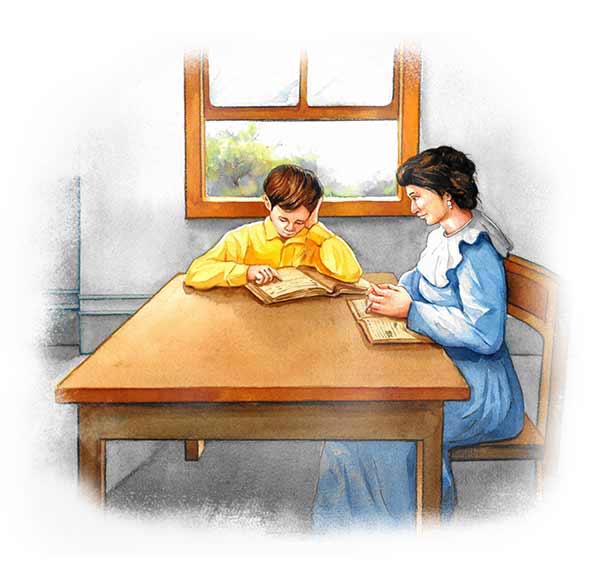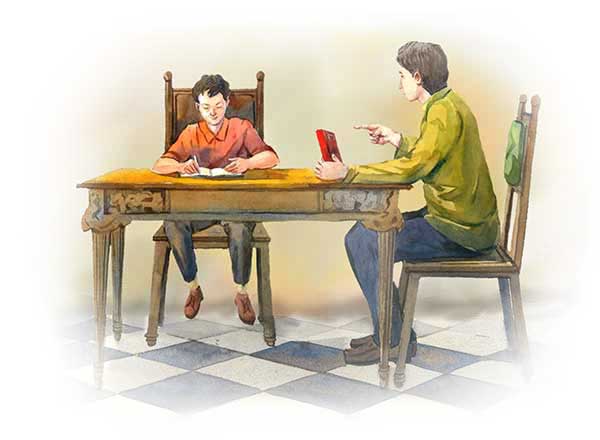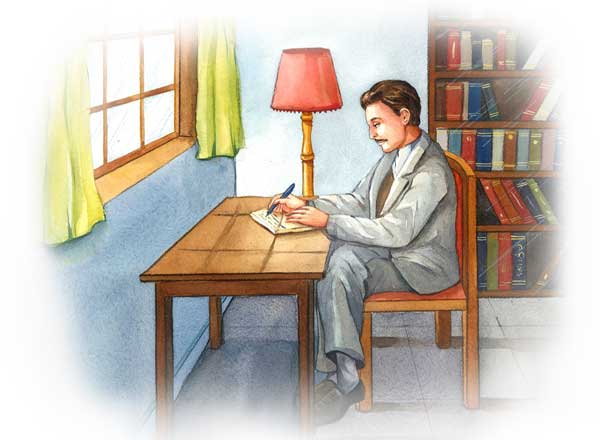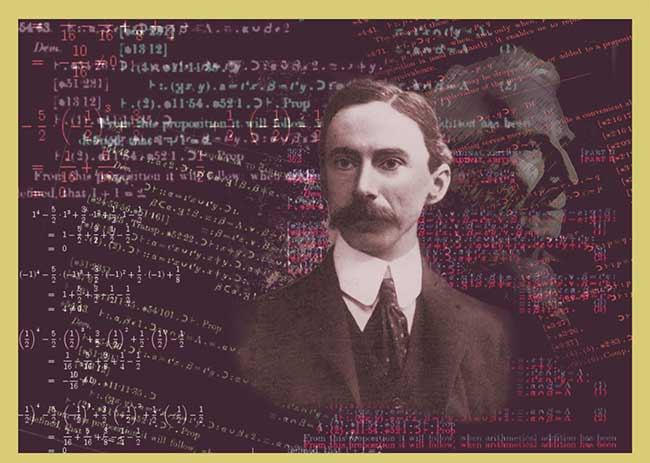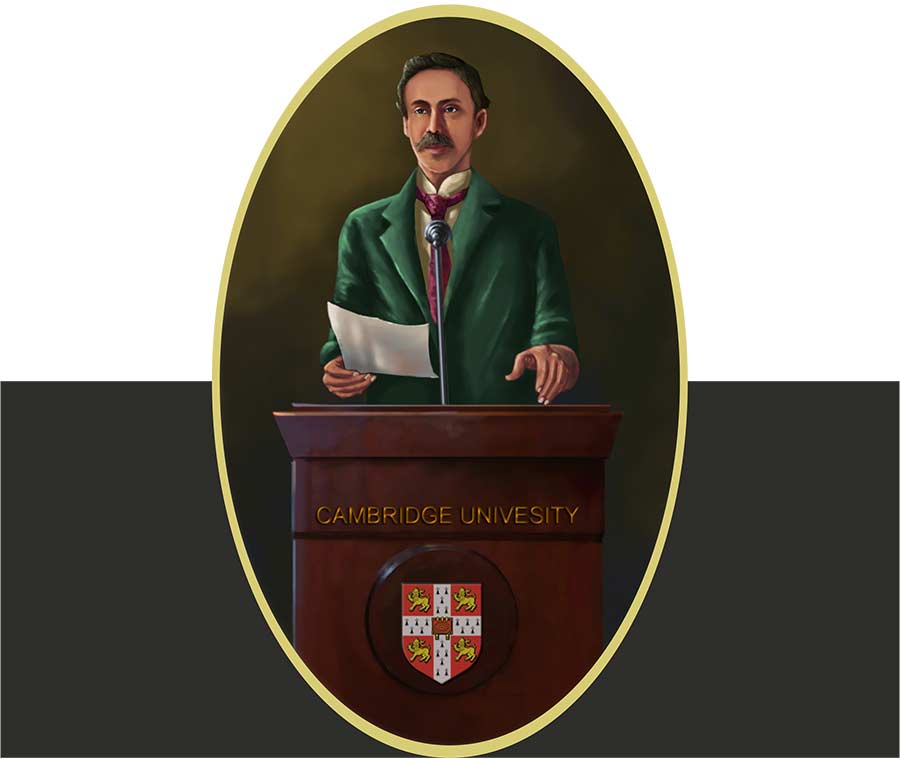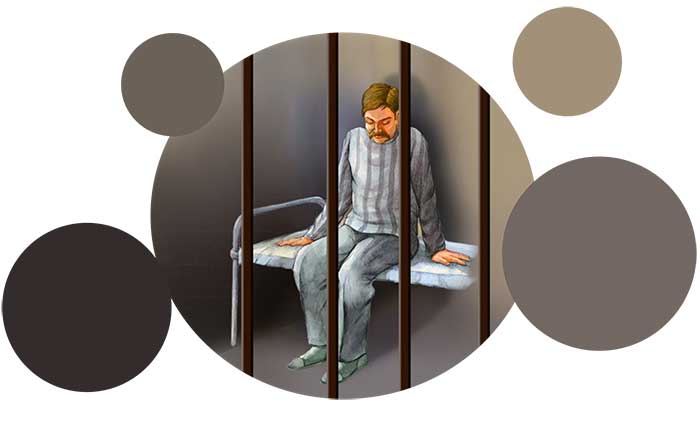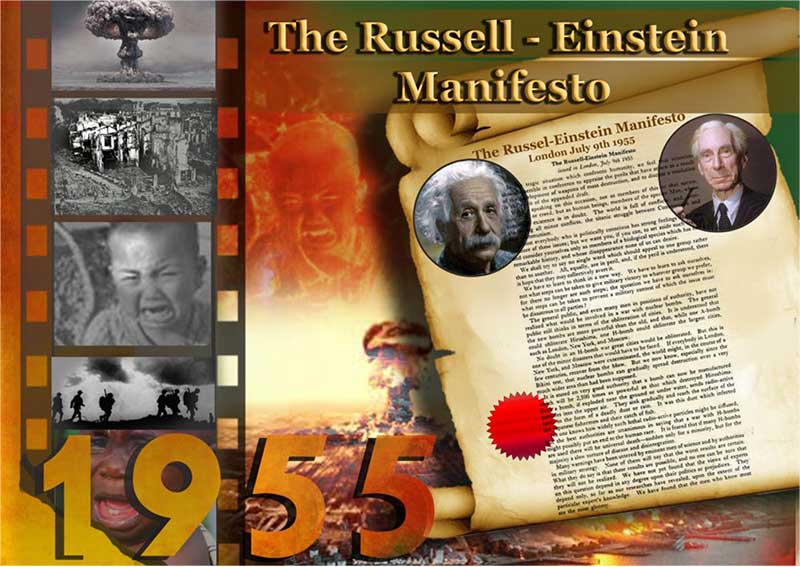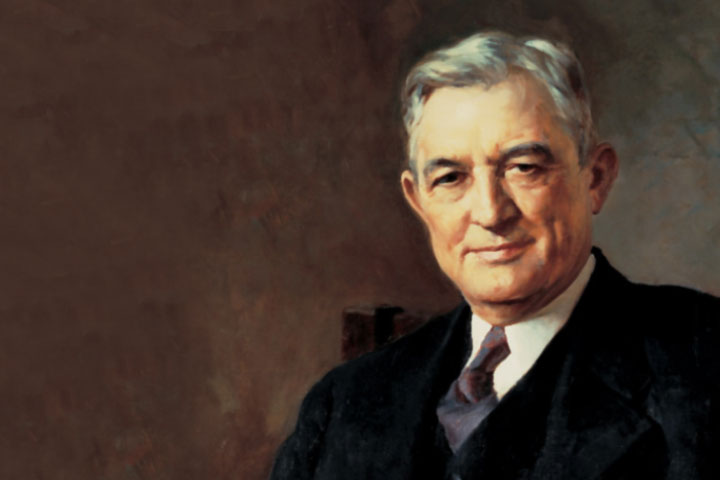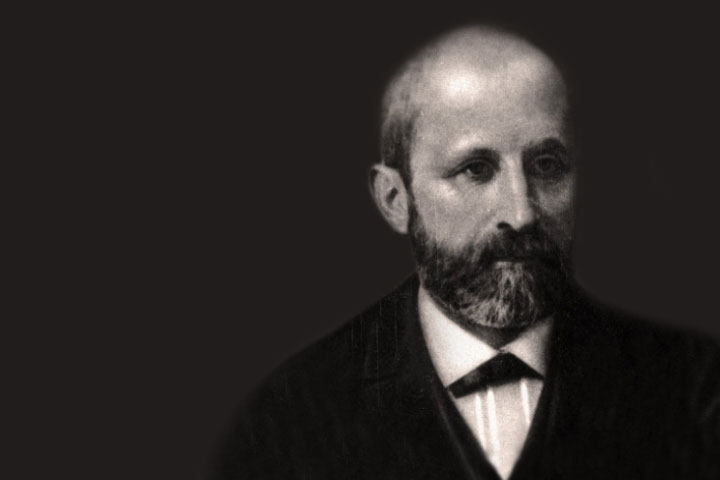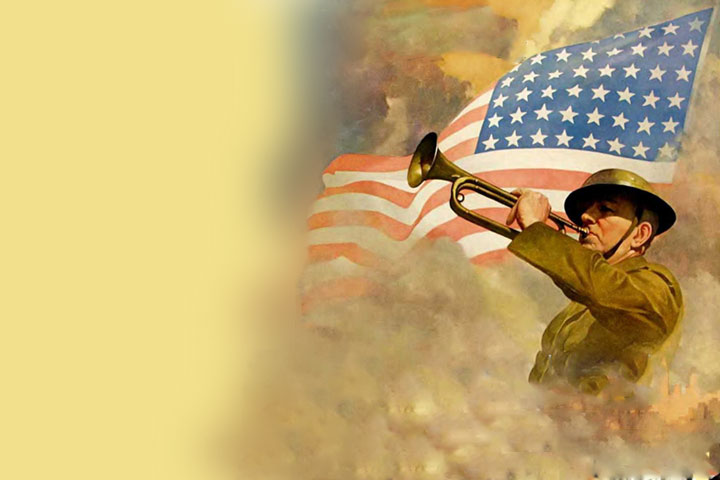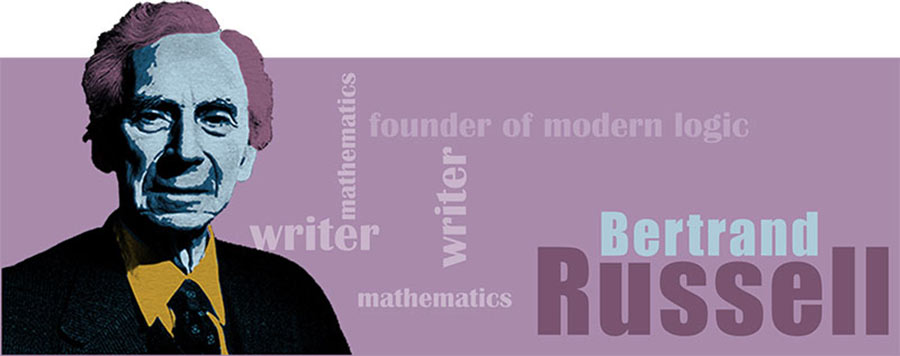
Introduction
Bertrand Arthur William Russell, the founder of modern logic, Philosophy’s son, major contributor in Mathematics’ and a writer at par. Bertrand Russell was a man who wore many a hats with equal élan. He was the 3rd Earl Russell to the aristocratic Russell family, which had been known in Britain for several centuries. Bertrand was also a popular commentator on many social issues that plagued the society back then.
"Bertrand Russell is a slight, dark-haired man, with a prominent forehead, bright eyes, strong features except for a retreating chin, nervous hands and alert quick movements. In manner of dress and outward bearing he is most carefully trimmed, conventionally correct and punctiliously polite, and in speech he has an almost affectedly clear enunciation of words and preciseness of expression. In morals he is a puritan; in personal habits almost an ascetic, except that he lives for efficiency and therefore expects to be kept in the best physical condition. But intellectually he is audacious - an iconoclast, detesting religions or social conventions, suspecting sentiment, believing in the 'order of thought' and the order of things, in logic and in science. He is a delightful talker, especially in general conversation. He dislikes bores and hates any kind of self-seeking selfishness or coarse-grainedness. He looks at the world from a pinnacle of detachment, dissects persons and demolishes causes."
- Beatrice Webb, member of the Fabian Society
Bertrand’s ideals of humanism and free thinking lent him an atheistic outlook towards life, thence being convinced that God did not exist. He continued his family tradition of politics by being a liberal and a socialist along with being an anti-war activist. He was also an ardent proponent of nuclear disarmament. Bertrand Russell later came to be known as the “English Voltaire” mainly for his work as a philosopher and mathematician.

A Lonely Adolescence
Bertrand’s paternal grandfather, John Russell was the first Earl Russell (A British nobleman ranking above a Viscount and below a Marquess). He had been the British Prime Minister in the 1840s and 60s and was the second son of the 6th Duke (a member of the nobility, historically of highest rank below the Monarch) of Bedford. The Russells were counted as one of the leading Whig (Liberal) families in Britain. They witnessed almost every great political event, from the Dissolution of the Monasteries in 1536-40, to the Glorious Revolution in 1688–89, to the Great Reform Act in 1832.
Kate Kinsley, Bertrand’s mother was also from an aristocratic family. She was the sister of the Countess (a title in European countries for a noble of varying status, but historically deemed to convey an approximate rank intermediate between the highest and lowest titles of nobility) of Carlisle, Rosalind Howard.
Born on the 18th of May, 1872 at the height of Britain’s social and economic ascendency at Ravenscroft, Trellech, Wales, to Viscount Amberley and Katharine Louisa (Kate’s name after her marriage), Bertrand was the youngest of the three siblings, with Frank his brother, nearly eight years elder to him and his sister Rachel, four years elder to him.
Bertrand’s parents were pretty radical according to those times. Three reasons account to this statement. Firstly, both advocated birth control at a time when it was considered a taboo. Secondly, Amberley chose to be an atheist, a belief that was rare during those times. Thirdly, and not the least, Amberley did not raise his voice in spite of learning about his wife’s affair with their children’s tutor, the Biologist - Douglas Spalding.
However, Bertrand at the age of three was in for a lonely childhood as in a span of two years he lost his mother to diphtheria in June 1874 and soon after, he lost his sister Rachel. This was followed by the death of his father who at his wife and daughter’s death remarked, “two greatest treasures in this world are gone almost at one blow.” Amberley died in 1876 on account of bronchitis, after a long bout of depression due to an unwillingness to live.
Thereafter, since there was no one to take care of him and his brother Frank, both were put in the hands of their staunch grandparents at Pembroke Lodge in Richmond Park near London. Bertrand remarks, “My first vivid recollection is my arrival at Pembroke Lodge in February 1876. To be accurate, I do not remember the actual arrival at the house, though I remember the big glass roof of the London terminus, presumably Paddington, at which I arrived on my way and which I thought inconceivably beautiful. What I remember of my first day at Pembroke Lodge is tea in the servant's hall. It was a large, bare room with a long massive table with chairs and a high stool.”
However, within a period of two years their grandfather expired and thereafter, their grandmother played a crucial role in the lives of both the siblings.
Meanwhile, Bertrand was left in a lurch with loneliness and anxiety and starved emotionally. The ambience at Pembroke Lodge was one with strict Victorian views, regular prayers and formality. But as Pembroke Lodge offered a scintillating view of River Thames and the Surrey Hills, it proved to be an adventurous zone for him.
Amberley, Bertrand’s father, had provisioned in his will that the children be raised as atheists. While an atheist is someone who completely rules out the existence of the supreme, an agnostic is one who believes that it is impossible to know whether there is a God. Belonging to a strict Scottish family, Lady Russell petitioned the British court regarding the will and proposed that the children be raised as agnostics. Not only this, in spite of being religiously conservative, Lady Russell accepted Darwinism and also propagated Irish home rule. Irish home rule was a setting in which Irish leaders demanded a form of self rule within the British Parliament.
While Frank reacted to such a mundane and melancholic environment by being a rebel, the reticent Bertrand chose to hide his feelings behind a calm exterior. In unpublished memoirs he writes, “From adolescence onwards, I was driven by a desperate misery of loneliness for which I knew that love would be the only cure.”
Bertrand remarked that his grandmother, “ate only the plainest food, breakfasted at eight, and until she reached the age of 80 never sat in a comfortable chair until after tea.”
As Bertrand grew, the Spartan regime at Pembroke prepared him for the rigours of the outer world. A daily routine of a cold bath and half an hour of piano practice before the family prayers at eight followed.

Bertrand was thrown from the easy-going life of Ravenscroft into the more mellow and disciplined environment at Pembroke. The emotional vacuum was soon to make him a tough man, both physically and intellectually.
Frank had been sent to school at Winchester and had attracted enough trouble. Hence, Lady Russell (Bertrand’s grandmother) was crystal clear about not sending Bertrand to a public school
and therefore, wanted him to be home schooled. This meant that Bertrand would lack the sturdiness and competitiveness that a public school might have provided.
As George Santayana, a fellow American philosopher and a family friend of the Russells put it:
“Bertie at least must be preserved pure, religious and affectionate; he must be fitted to take his grandfather’s place as Prime Minister and continue the sacred work of reform.”
Bertrand was hence put into the hands of local tutors.

In Need of Certainty
Bertrand now felt an increased need to find some sort of a certainty in life, having been transported from a love-filled environment to a life full of duties and responsibilities. This unsatisfied need for certainty propelled his future. The first indication came when Frank, his elder brother, began teaching him the elements of Euclid, the Greek mathematician and the “Father of Geometry”. Bertrand wrote:
“At the age of eleven, I began Euclid, with my brother as my tutor. This was one of the great events of my life, as dazzling as first love. I had not imagined there was anything so delicious in the world. From that moment until I was 38, Mathematics was my chief interest and my chief source of happiness.”

early Education
In 1890, Bertrand enrolled himself at the Trinity College at Cambridge University and won a scholarship to read Mathematics there. Having developed a knack for Mathematics over the years, he quickly distinguished himself as a front runner among others and graduated with a B.A in 1893 and a fellowship in 1895. Bertrand also came under the influence of G.E.Moore, a famous British philosopher and Alfred North Whitehead, a fellow mathematician who gave his reference to the Cambridge Apostles. The apostle was a small society of gifted undergraduates who were given membership for their exceptional talent. Mathematics mainly drew Bertrand for two reasons:
Firstly, he felt that there was a certain mystic quality about Mathematics. Second was the fact that Mathematics “had nothing particular to do with this planet or with the whole accidental universe because, like Spinoza’s God, it won’t love us in return.”
For the uninitiated, Spinoza was a Jewish-Dutch philosopher who believed in his own ideal of God.
“Spinoza’s God doesn’t look like anything. Spinoza’s God looks like everything. The entire universe, material and spiritual, every speck of dust, every thought running through any mind at any time is part of the infinite intellect of Spinoza’s God.”
At the end of his three years at Trinity, Bertrand was called as the Seventh Wrangler in the Mathematical Tripos. However, the work entailed in the four year Tripos course made him question the foundations of Mathematics. “The attempt to acquire examination technique had led me to think of Mathematics as consisting of artful dodges and ingenious devices and as altogether too much like a crossword puzzle,” which is why he turned to philosophy.
Philosophy during the 1890s in Cambridge was marked by the Absolute Idealists (people who believed in philosophical theory chiefly associated with G.W.F. Hegel and Friedrich Schelling, both German idealist philosophers of the 19th century) who were of the opinion that ultimate reality consists of mind and spirit rather than matter. It was only in his fourth year at Trinity that Bertrand became a part of the idealist camp without any reticence. He remarked, “There was a curious pleasure in making oneself believe that time and space are unreal, that matter is an illusion, and that the world really consists of nothing but mind.”
In the summer of 1894, he sat for the Moral Science Tripos and gained an honours degree in it. This propelled Lady Russell’s expectations of him to start a parliamentary career.
Bertrand Russell’s powers of analysis were so formidable that one friend called him “The Day of Judgment”. Bertrand wrote to another friend:
“I feel myself so rugged and ruthless, and somewhat removed from the whole aesthetic side of life – a sort of logic machine warranted to destroy any idea that is not very robust.”

The Beat of First Love
Love came to Bertrand at an early age of 17. Lord Amberley’s brother, Uncle Rollo lived on the slopes of Hind head, forty miles east of London. The Pearsall Smiths, a family of rich Philadelphia Quakers lived nearby. Uncle Rollo was out for an afternoon stroll when he decided to introduce his nephew to Alys, the youngest daughter of the Pearsall Smiths and the prospective Mrs. Bertrand Russell.
Bertrand considered Alys to be sophisticated and puritanical. He was enchanted by the fact that she had connections with various educationalists and religious activists. Meanwhile, Lady Russell did not take kindly to his grandson’s liaison with Alys. The news was received with utmost horror, since she was five years elder to him and was the daughter of a rich American manufacturer. Whereas, though not conventionally good-looking, Bertrand had a charm of his own that saw women falling for him. 5’9, slightly built, hazel eyed, he usually viewed things in a sceptical manner. His vigour and confidence were definite turn-ons with women.
Capitalizing on her health, Lady Russell chose to put off the hullabaloo that would be caused by Bertrand’s proposal to Alys, which is why she asked him to not see his beloved for three months by sending him to Paris. The British Ambassador in Paris was persuaded to appoint Bertrand as his ad-hoc attaché in the city. Lady Russell felt that Bertrand’s attraction to Alys would be subdued after seeing the high life of Paris.
Keeping his promise to not see Alys for three months, Bertrand spent his time in Paris. Even when he returned to Cambridge for the apostles, he simply chose to send Alys a letter. Later, Bertrand travelled back to Paris with Alys’s sister, Mary Costelloe, who was to marry the famous American art historian, Bernard Berenson.
However, in December 1894, Bertrand came back from Paris and married Alys, thereby cutting himself off from an environment that he was not so affectionate about. Later, when Pembroke Lodge was taken over by the civil service, Bertrand wrote, “Almost every night before falling asleep I see the garden in which I passed my childhood, which has since been destroyed; I mind its destruction quite as much as the deaths of people I have loved.”

the beginning of a writer
While in Berlin, Bertrand thought of writing on two different genres. Firstly, write on a series of books in the philosophy of the sciences; gradually growing more concrete as he passed from Mathematics to Biology. Secondly, write a series of books on social and political questions, growing gradually more abstract. His writings shifted from one topic to another, varying in style and matter. He was soon to become an established name in the academic and non-academic world.
In early 1895, Bertrand and Alys whisked off on a tour of the European continent. After having spent a while in Berlin, they went to the Alps and to the Adriatic from Ravenna to Ancona and finally to England. The newlyweds made a small cottage at Fernhurst, a little away from the Pearsalls.
While at Fernhurst, Bertrand began writing ‘An essay on the foundations of Geometry’ and also commenced his thesis for a Trinity prize scholarship, which commanded members to write on a topic of their own choice.
The thesis was based on “all space has a constant measure of curvature,” a belief which was later advocated by Albert Einstein (a German-born theoretical physicist who developed the general theory of relativity). Bertrand later learnt that he had been awarded the prize scholarship and hence left for Berlin. Soon in 1896, he started his study on the workings of the ‘German Social Democratic Party’.
The ‘German Social Democracy’ was his first published work and Bertrand soon involved himself with various social reformers. This showed he could research a subject speedily and instil that research in the form of a comprehensible prose that any lay man could understand. Other than this, women rights, future of technology, the problems of education and the morals of war were certain serious subjects about which he strongly felt for. Conversely, he even wrote on more subtle subjects like ‘Love and Money’, ‘On the fierceness of Vegetarians’, and ‘Should Socialists Smoke Good Cigars?
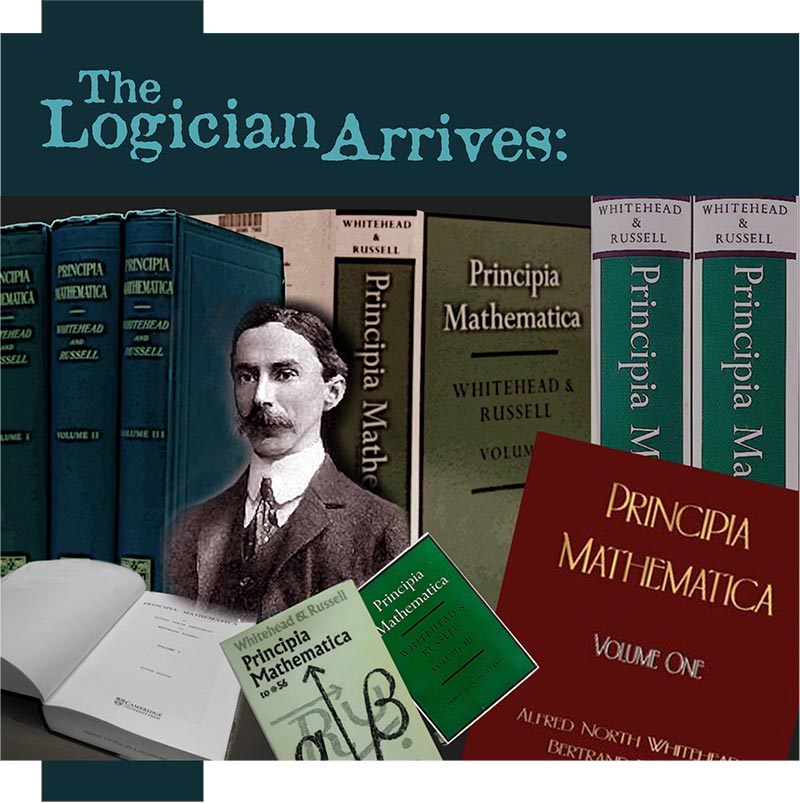
the logician arrives
Bertrand lectured on the foundations of Geometry at John Hopkins University in Baltimore. Soon, they returned to England and settled in Millhanger, their new home on the outskirts of Fernhurst. Here, Bertrand started working on the new structure of Mathematics which in turn would facilitate the simplest laws of logic. Such a system would enable a single mixture of logic and Mathematics.
It was precisely during this period that Bertrand started contemplating his idealist beliefs. The idealists believed that everything rested in the mind of the beholder, whereas Bertrand wanted to prove that Mathematics was objective and independent of the mathematicians. Meanwhile, his intellectual stigma was mixing up with emotional imbalance. In 1901, when he and Alys returned to Cambridge, they initially stayed with the Whiteheads. Bertrand could not see Mrs. Whitehead in pain (after a heart attack), and it was then that he realized this sudden ‘conversion’ towards her.
It was when Bertrand was lecturing at Trinity that he felt he was out of love with Alys. One fine day, when he went for a bicycle ride in the afternoon at Mill House, Grantchester, the Whitehead’s new home, he admitted “I had no idea until this moment that my love for her was even lessening.” The problem presented by this discovery was very grave and he was now unable to hide the fact that he had fallen out of love with Alys; he could not see her the same way as when they were in love. Both endured a life of mutual agony and pain for nine years, after which they parted ways. However, the instance drove Bertrand to further focus his concentration on Mathematics.
This gave way to the book ‘The Principle of Mathematics’ in 1903 wherein he argued his thesis that Mathematics and logic are identical. Later came ‘Principia Mathematicia’ , a book on the foundations of Mathematics which was published with Whitehead in three volumes between 1910 and 1913. “I created with all an artist’s passion for the perfect, a new treatment of Symbolic Logic,” Bertrand said of The Principles of Mathematics, and “to my joy Whitehead finds that it has all the beauty and perfection that I hoped.”
While Bertrand was working further on The Principles of Mathematics which could have proved that all Mathematics followed from logical principles of his first volume, Whitehead too was simultaneously working on his own book ‘Universal Algebra’, an effort to discover common principles of algebras in logic and Mathematics.
Later, Whitehead remarked, “We discovered that our projected volumes were practically on identical topics, ‘so we coalesced to produce a joint work. We hoped that a short period of one year or so would complete the job. Then our horizon extended and in the course of eight or nine years, Principia Mathematica was produced.”
Principia Mathematicia is considered to be a monumental work in the history of logic. Meanwhile, Bertrand’s ‘paradox’ was avoided in Principia Mathematicia, which he discovered while working on The Principles of Mathematics.

russels paradox
According to naive set theory, any definable collection is a set. Let R be the set of all sets that are not members of themselves. If R qualifies as a member of itself, it would contradict its own definition as a set containing all sets that are not members of themselves. On the other hand, if such a set is not a member of itself, it would qualify as a member of itself by the same definition.
The barber‘s story is a popular example of Bertrand’s paradox:
Suppose there is a town with just one barber, who is male. In this town, every man keeps himself clean-shaven, and he does so by doing exactly one of two things:
1. Shaving himself, or
2. Going to the barber.
Another way to state this is:
The barber is a man in town who shaves those and only those men in town who do not shave themselves.
All this seems perfectly logical, until we pose the paradoxical question:
Who shaves the barber?
This question results in a paradox because, according to the statement above, he can either be shaven by:
1. Himself, or
2. The barber (which happens to be himself).
However, none of these possibilities is valid. This is because:
· If the barber does shave himself, then the barber (himself) must not shave himself.
· If the barber does not shave himself, then he (the barber) must shave himself.
This contradiction is Russell’s paradox.

Politics Beckons
Even though Mathematics consumed much of his time, Bertrand had an interest in politics. He was a founder-member of Sidney Webb’s (a British socialist, economist, reformer and a co-founder of the London School of Economics) ‘Co-efficients’ (A number or symbol multiplied with a variable or an unknown quantity in an algebraic term). Bertrand spoke on ‘Free Trade’ and also served on the committee of Women’s Suffrage Societies. Finally, it was in 1907 that he stood for a seat in the Parliament. In the same year, the Wimbledon seat in south-west London got vacant on account of the resignation of the then conservative MP. The Liberals did not contest a seat but just before a day of the elections, they decided to choose Bertrand Russell for their candidature.
Bertrand advocated women’s suffrage and he later admitted that the subject was treated with ‘mere hilarity’; hence, he faced quite a lot of flak for it. The election was one of utter chaos, with rats being let loose during his first public meeting against his opponent;Chaplin mustered up 10,263 votes whereas Bertrand received only 3299.
The hullabaloo introduced him to the more public, chaotic life. Moreover, the Principia too had come to an end and Bertrand was on the lookout for what to do next. He even mentioned that within the next two years of such an unsatisfactory life, the only thing that kept him from committing suicide was his love for Mathematics.
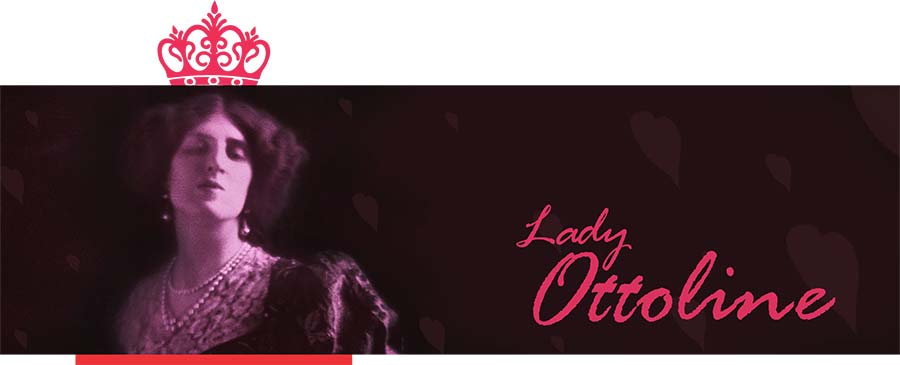
Lady Ottoline
In 1909, Bertrand met Philip Morrel, the MP for South Oxfordshire, and his wife Lady Ottoline. Bertrand wrote of her, “Ottoline was very tall, with a long thin face, something like a horse, and very beautiful hair of an unusual colour, more or less like that of marmalade, but rather darker.” Even Ottoline wrote in her diary: “I don’t think I have ever met anyone more attractive, but very alarming, so quick and clear sited, and supremely intellectual-cutting false and real asunder. Somebody called him ‘The Day of Judgment’.”
As a matter of fact, there was something brewing between them. His affair with Lady Ottoline affected his public and private life. Due to her, Bertrand was brought in contact with the artistic and literary groups of his times and even the political circles.
The liaison also led him to writing letters, some love letters and others on various topics like his life at Cambridge and his accounts of meetings with great men like Joseph Conrad (a Polish author), D.H.Lawrence (an English novelist, poet, playwright, essayist, literary critic and painter), T.S. Eliot (a poet, playwright, literary and social critic) and the one who was to become the most important person to him, Ludwig Wittgenstein (an Austrian-British philosopher).
A few weeks later, Lady Ottoline was to become his mistress. Despite Bertrand’s appeals, she never thought it conducive to break her marriage or move away from the social position she enjoyed. Ottoline’s influence awakened him in an aesthetic sense too. Bertrand later admitted, “In my heart the whole business about Art is external to me-I believe it with my intellect, but in feeling I am a good British Philistine.” Now he could write about enjoying Bach’s music, appreciating the landscape in Italy and applauding the stature of Victory in Brescia. Under her influence he even embarked on a novella, ‘The Perplexities of John Forstice’.
Meanwhile, it was in 1911 that he met Ludwig Wittgenstein, an Austrian engineering graduate, who worked as a research student in Aeronautics in Manchester University. While being stuck here on designing a jet reaction propeller, Ludwig had turned to Philosophy and Mathematics. Ludwig arrived at Trinity in the same year to study under Bertrand. From the very beginning, Bertrand was fascinated by Ludwig and remarked of him, “perhaps the most perfect example I have ever known of genius as traditionally conceived, passionate, profound, intense and dominating.”
He was viewed by Bertrand as a successor to his findings on Mathematics. Even after Ludwig’s phobias and spasms of despair, Bertrand continued encouraging him, thereby leading him to write ‘Tractatus Logico-Philosophicus’, which was to be published eleven years later.
However, Bertrand devoted himself to an important task. Principia Mathematicia was not just famous in England, but also in the USA, with supporters of New Realism (early 20th-century movement in Metaphysics and Epistemology that opposed the idealism dominant in British and U.S. Universities) widely reading it. On account of that, Bertrand was invited to give lectures at Cambridge and to give a course at Harvard.
Eventually, he agreed to do the same in March 1914.

first world war
Meanwhile, the First World War was taking shape and before the end of 1914, Bertrand had joined the Union of Democratic Control, an organisation that was to survive the First and Second World War. The war overthrew Bertrand’s rationality-oriented world. He indulged in pacific activities during the First World War, which saw him being overthrown by Trinity College in 1916. He was convicted under the ‘Defence of the Realm Act’.
Moreover, in order to investigate the effects of the Russian Revolution, Bertrand was sent to Russia by the British government as a member of an official delegation. In the same year, Bertrand met Dora Black, a British author and socialist campaigner who was visiting Russia independently, as she was keen to know about the revolution. The two got into a relationship three years later, when Bertrand asked her to join him on his summer holidays. During the First World War, Dora supported Bertrand in his campaign against military conscription. However, Bertrand was imprisoned at Brixton prison for six months for lecturing in public, against United States’ invitation to enter the war on Britain’s side.
“Prisoner 2917” as Bertrand was called, made the best of his prison days. “I had no engagements, no difficult decisions to make, no fear of callers, no interruptions to my work”, he later wrote. While in prison, he also wrote, the ‘Introduction to Mathematical Philosophy’, a book that gave a comparatively simpler account of The Principles of Mathematics and Principia Mathematicia. Bertrand was later released in September 1918.
Bertrand also wrote a book titled ‘The Practice and Theory of Bolshevism’ in 1920, based on his Russian sojourn. He also started lecturing in Beijing on philosophy, which lasted for a year. It was here that he became seriously ill with pneumonia, so much so that the press went berserk with reports of his death. While visiting Japan on their return journey, Dora remarked to the journalists, “Mr Bertrand Russell, having died according to the Japanese press, is unable to give interviews to Japanese journalists.”
By the end of April, Bertrand was on his way to recovery. Some weeks later, he learnt about Dora’s pregnancy, which is why he came back to England in 1921. Alys had been granted a decree, which usually took six months to be made absolute. However, Alys speeded up the application process for divorce, knowing Dora was already pregnant and being unmarried in such a case would mean defamation of the potential Fourth Earl. Bertrand married Dora on 27th September, 1921, and also told Ottoline that he wanted to lead “a common life” with Dora. Dora and Bertrand had two children and they named them John Russell and Katharine Jane Russell.
Bertrand wrote books on philosophy, ethics and the common man. Bertrand held an interest in education as he was of the opinion that if the young were subject to a proper education, many of the world’s problems would find a solution. He realized that practical and theoretical learning were poles apart and that school was more of a burden. He established the experimental Beacon Hill School in 1927 but left it in 1932, after the breakdown of his marriage with Dora because of her having two kids with an American journalist, Griffin Barry. However, Dora continued with the Beacon Hill School for eleven more years.

third marriage and world war 2
Meanwhile, after having ended his second marriage, Bertrand was soon to find love again. On 18th January, 1936, he married his third wife, Patricia Spence or Peter, an Oxford undergraduate. She had been his children’s governess since the 1930s. They had one son, Conrad Sebastian Robert Russell, who was to become a prominent historian in years to come.
In 1936, Bertrand published, ‘Which Way to Peace?’ a book in which he made it clear that the horror of bombings would be much greater than those of surrendering to the Germans. But once the war began, his stance began to change. Having been initially against the Nazis, Bertrand later changed his thoughts, thereby advocating that World War was more important than focusing on defeating Hitler.
Bertrand became a professor at the City College in New York in 1940. However, an anti-cry against him saw his appointment being adjourned. The reason being, he was thought to be ‘morally unfit’ to teach. The movement was started by the mother of a student, who did not get admission in abstract, mathematical logic.
Bertrand later became a part of the Barnes foundation and lectured on philosophy. Returning back to Britain in 1944, he rejoined as a lecturer of Trinity College.

the many works of Bertrand Russell
Bertrand Russell’s most popular work, ‘A History of Western Philosophy’ was published in the year 1945. The book was a must read and facilitated him with a life that was financially secure. In 1949, Bertrand was named by King George VI to the Order of Merit, whose British membership was limited to twenty-four people. The very next year in 1950, he was also awarded the Nobel Prize for Literature.
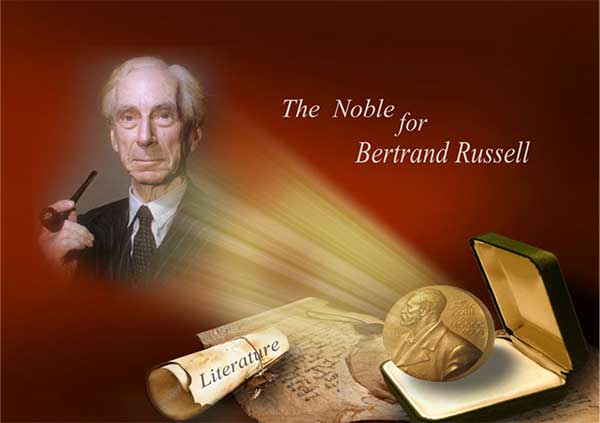

Bertrand on Epistemology
Bertrand was a philosophical realist and retained that acquisition of knowledge was influenced by direct experiences. ‘Knowledge by acquisition’ and ‘knowledge by description’ were thought by him as two ways in which one could be familiar with objects.
Bertrand felt that one could be acquainted with his own sense of data of perception of colours, sounds and the like — and everything else, including physical objects could be inferred, i.e. known by description.
Distinctions between the immaterial and material world were ‘arbitrary’ and both could be reduced to a neutral property.
On Ethics
Bertrand was of the opinion that there are no moral facts. Matters of fact were distinguished from matters of value. He believed that ethical propositions are a result of our intuition. This was not to say that he disregarded ethical propositions. He always believed in something more satisfying and trustful than the positivist-emotivist point of view. However, he thought that ethics lay outside the purview of philosophy. And that they were a very vital proponent of civil life. Although Bertrand was always thought to be a patron of rationality and logic, he agreed with Scottish philosopher David Hume who established that reason was subordinate to ethics.
On God and religion
Bertrand disregarded the existence of a supreme being early on. Although he could not prove the non-existence of God, he thought religion was based largely on fear and superstition. He felt that a religious outlook impeded knowledge and dependency.
He remarked, “Religion is based, I think, primarily and mainly upon fear. It is partly the terror of the unknown and partly, as I have said, the wish to feel that you have a kind of elder brother who will stand by you in all your troubles and disputes. Fear is the basis of the whole thing -- fear of the mysterious, fear of defeat, fear of death. Fear is the parent of cruelty, and therefore it is no wonder if cruelty and religion have gone hand in hand. It is because fear is at the basis of those two things. A good world needs knowledge, kindliness and courage; it does not need a regretful hankering after the past or a fettering of the free intelligence by the words uttered long ago by ignorant men.”
- Bertrand Russell, Why I am Not a Christian and Other Essays on Religion and Related Subjects
Bertrand often raised views against the norms of the Roman Catholic Church on divorce and sexuality, which he thought to be anachronistic. He believed communism to be nothing short of religion since he thought that it substituted dialectical material for God. Bertrand longed for a deeper meaning in life. His quest for eternal truths saw him write his famous essay, ‘A Free Man’s Worship’, which was considered to be a masterpiece in prose. Bertrand’s work in philosophy could see nearly five categorizations or phases: ‘Early Analysis and Realism’, ‘Logicism’, ‘Logical Atomism’, ‘Neutral Monism’, ‘Scientific Realism’, ‘Analytical Philosophy and Realism’.
Considered to be one of the founding members of Analytical philosophy, Bertrand worked along with G.E. Moore for the ‘British Revolt against idealism’. Bertrand loathed the idealist doctrine of internal relations. It withheld that one must know the related things in order to know a particular thing. This led him to remark that if this was true, it made space, time science and numbers meaningless.
Bertrand and Moore were of the opinion that philosophy should establish clarity of purpose and eliminate confusion. He thought logic and science were a philosopher’s main tools. He wanted to put an end to the excesses of metaphysics. Also, Bertrand adopted Occam’s razor, as a part of his method of analysis.
Logicism
This phase was marked by ‘The Principles of Mathematics’ and ‘Principia Mathematicia’ where Bertrand sought to reduce mathematical truths to deductive logic, and the latter was marked by primitive ideas.
Logicism holds that all of Mathematics can be reduced into formal logic and is explained in two parts; firstly, it holds that all mathematical truths can be translated to logical truths, and secondly, all mathematical proofs can be translated to logical proofs.
There were two axioms in the Principia that were contradictory: the axiom of infinity and reducibility. The infinity axiom held that an infinite number of objects exist, whereas the reducibility axiom was meant to overcome Russell’s Paradox and the unsatisfactory theory of types. The paradox relates to the set theory by considering that the set of all sets are not members of themselves. It would contradict its own definition as a set containing all sets that are not members of themselves. On the other hand, if such a set is not a member of itself, it would qualify as a member of itself by the same definition. This contradiction is Bertrand Russell's paradox. Even though Principia Mathematicia was controversial, it brought about a huge popularization of modern logic. It also brought about a connection between logicism and two other branches of philosophy, namely, Metaphysics and Epistemology.
Logical Atomism
A form of radical empirism, Bertrand believed that the entire world consists of simple constituents or logically independent facts and one’s knowledge about the data depends on these, through direct experiences. This phase was influenced by Wittgenstein (an Austrian-British philosopher) and Bertrand believed that there was a correspondence between language and facts in the world. Moreover, through analysis we could arrive at the facts or bare essentials and hence the term ‘atomism’.
Neutral Monism
Neutral Monism is a phase describing the nature of mind and matter. It says that the world consists neither of mind nor matter but of neutral components that make up the mind and body both. Even though stalwarts like William James (American philosopher) and Ernst Mach (Austrian physicist) had previously advocated the theory, Bertrand added his own ideas to it and revived it. He established that the difference between the two (mind and matter) is only a difference in which the components are placed together. Say for example, a phone book could be arranged either by name or by the address and yet it would comprise of the same individual components.
Scientific Realism
Bertrand thought that science was a major part of analysis. Although he believed in scientific method, he thought that science could only provide us with tentative answers. “It is at no moment quite right, but it is seldom quite wrong, and has, as a rule, a better chance of being right than the theories of the unscientific. It is, therefore, rational to accept it hypothetically.”
Women’s suffrage
Being a member of the Liberal Party, Bertrand wrote in favour of women suffrage. He said that some men opposed it because they “fear that their liberty to act in ways that are injurious to women will be curtailed.”
Sexuality
Bertrand’s views on sexuality were pretty ahead of the times. He said that sex between couples was not immoral if they loved each other and were unmarried. He advocated ‘trial marriages’ or ‘companionate marriages’ wherein a couple could have sex without being liable to remain married in the long run or with the purpose to bear children. He even advocated open sex education and access to contraception. Interestingly, he said that a couple should not go for a divorce if they had children, in order to lend the kids a normal ‘family’ life.
Pacifism and nuclear files
While Bertrand was never a complete pacifist, he did resent Britain’s participation in World War 1, as a result of which he was abolished from Trinity College, Cambridge. He was of the opinion that even though war did no good, it was necessary, as in the case when Hitler threatened to take over Europe. He laid the notion that in order to protect people’s democratic rights, Hitler surely had to be defeated.
Bertrand clearly opposed the use of nuclear weapons. In 1948, at a public gathering in Westminster, he suggested that a nuclear strike on the Soviet Union was justified. Bertrand said that a threat by the United States of America would force the Soviet Union to accept the Bharuch Plan for international atomic energy control. He was of the opinion that “this plan had very great merits and showed considerable generosity, when it is remembered that America still had an unbroken nuclear monopoly.”
During the 1950s and 1960s, Bertrand continued his anti-war and anti-nuclear protests. Together with Albert Einstein, he released the Russell-Einstein Manifesto in 1955, which supported the abolishment of nuclear weapons. In 1958, Bertrand became the first president of the Campaign for Nuclear Disarmament. In 1963, Bertrand’s work for peace and human rights was carried forward by the Bertrand Russell Peace Foundation. Opposing the Vietnam War, he also formed a tribunal meant to expose the U.S. war crimes. This tribunal was known as the Russell Tribunal.
Bertrand took part in BBC broadcasts on myriad philosophical subjects. He was called upon to talk on various topics and write in magazines and newspapers. In 1952, Bertrand and his third wife, Peter, got divorced due to unknown reasons. Bertrand married his fourth and last wife Edith Finch soon after their divorce. Both had known each other since 20 years when she lectured in English at Bryn Mawr College near Philadelphia. Their marriage was the most successful of all marriages that Bertrand had and she remained with him until his death.

the last breath
Bertrand Russell had in various ways been symbolic of zealous Victorians, full of energy and enthusiasm, stubborn on his beliefs, but willing to change them if reasons were provided. He believed that reasons would conquer if facts were explained. No wonder then that his life revolved around logic and Mathematics. Not only does he remain one of the greatest and most influential people of all time, he was also a man who gave the world a new way to look at life. On February 2, 1970, Bertrand Russell breathed his last at his home in Merioneth, Wales. His ashes were scattered, according to his wish.
“Three passions, simple but overwhelmingly strong, have governed my life: the longing for love, the search for knowledge, and unbearable pity for the suffering of mankind. These passions, like great winds, have blown me hither and thither, in a wayward course, over a great ocean of anguish, reaching to the very verge of despair.
I have sought love, first, because it brings ecstasy – ecstasy so great that I would often have sacrificed all the rest of life for a few hours of this joy. I have sought it, next, because it relieves loneliness–that terrible loneliness in which one shivering consciousness looks over the rim of the world into the cold unfathomable lifeless abyss. I have sought it finally, because in the union of love I have seen, in a mystic miniature, the prefiguring vision of the heaven that saints and poets have imagined. This is what I sought, and though it might seem too good for human life, this is what – at last – I have found.
With equal passion I have sought knowledge. I have wished to understand the hearts of men. I have wished to know why the stars shine. And I have tried to apprehend the Pythagorean power by which number holds sway above the flux. A little of this, but not much, I have achieved.
Love and knowledge, so far as they were possible, led upward toward the heavens. But always pity brought me back to earth. Echoes of cries of pain reverberate in my heart. Children in famine, victims tortured by oppressors, helpless old people a burden to their sons, and the whole world of loneliness, poverty, and pain make a mockery of what human life should be. I long to alleviate this evil, but I cannot, and I too suffer.
This has been my life. I have found it worth living, and would gladly live it again if the chance were offered me.”
Next Biography
Related Events And Inventions





